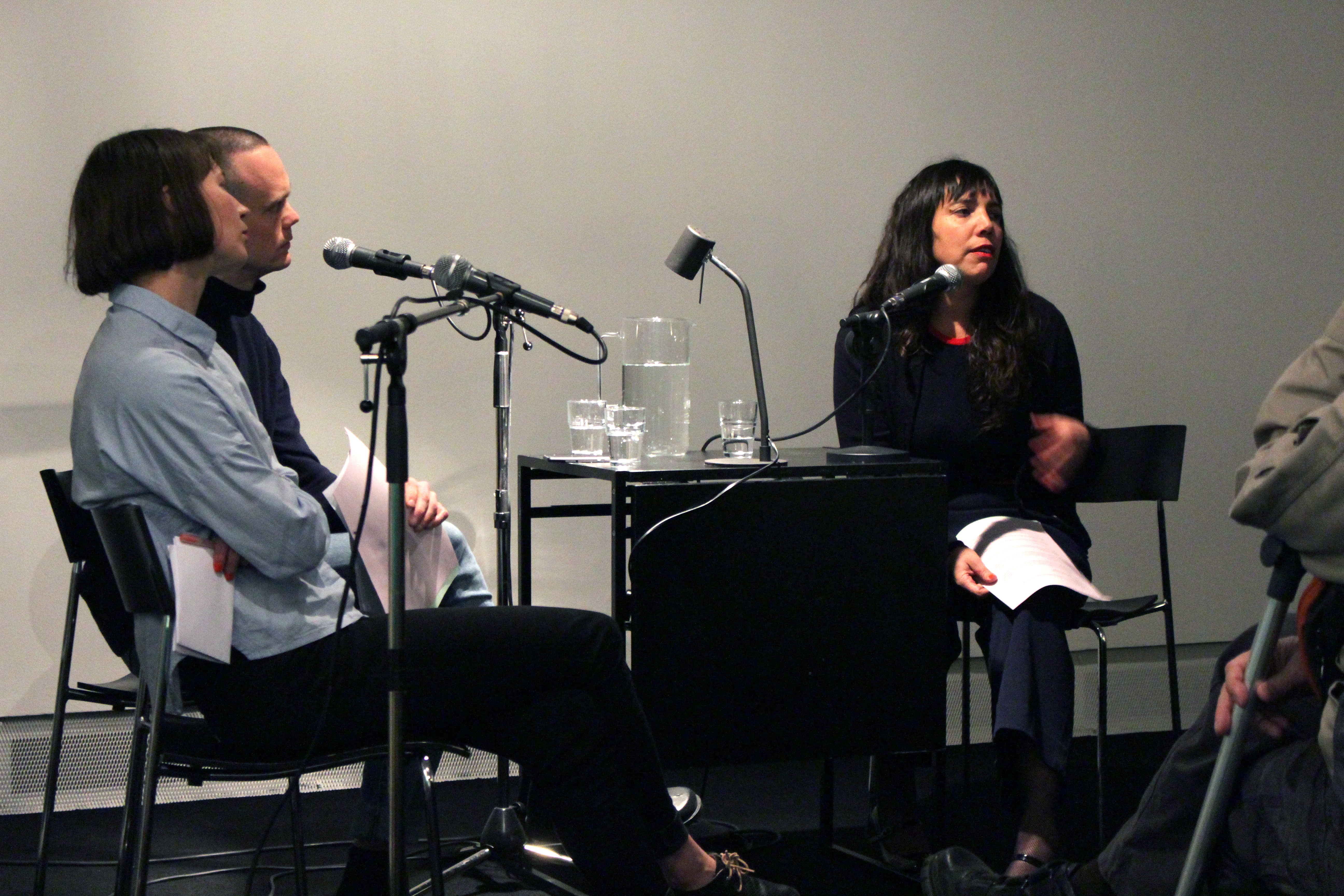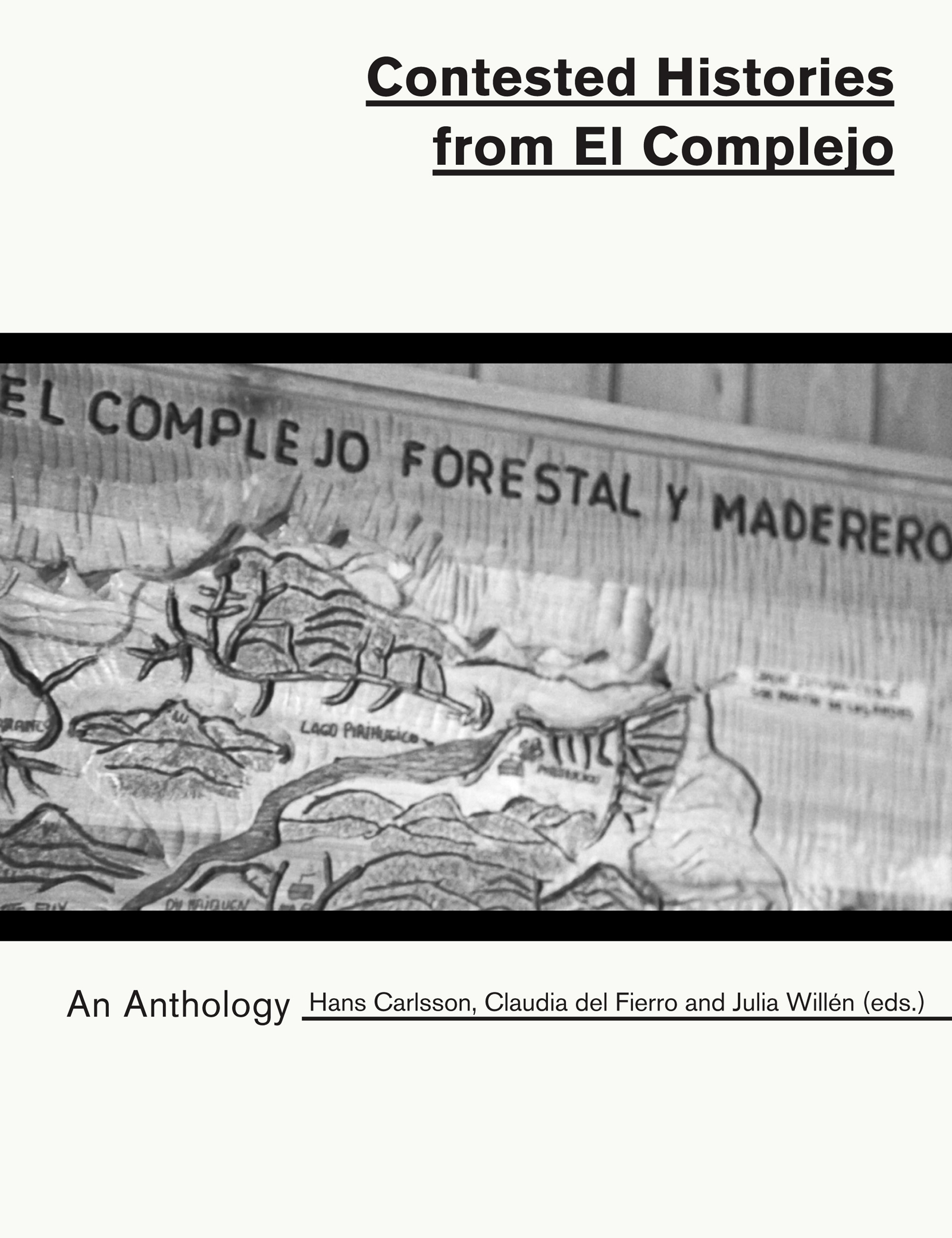Contested Histories From El Complejo: The Intersection Between Erasure and Remembrance



Screening and symposium, Tensta konsthall, May 4 2017 + Anthology, 2017.
Symposium and anthology included contributions by: Claudia del Fierro, Ricardo- Osvaldo Alvarado, Jennifer Baca, Maria Berríos, Hans Carlsson, Stefan Jonsson and Julia Willén.
Contested Histories From El Complejo: The Intersection Between Erasure and Remembrance was a collaborative project initiated by Claudia Del Fierro, Julia Willén and me. The project took the form of a symposium a screening and a publication(release in fall 2017) that gravitated from Claudia Del Fierro’s films El Complejo: Territorio liberado / Liberated territory (2017) and El complejo: La Guerrilla, la memoria / The Guerrilla, recollection (2014) and the histories they are based upon.
The point of departure for Del Fierro’s films El Complejo parts I and II is the forestry industry in Neltume, specifically El Complejo Forestal y Maderero de Panguipulli (The Panguipulli Forestry Complex), which was Chile’s biggest and most ambitious forestry industry during the Salvador Allende period (1970–73). The complex created a model of production with a strong focus on workers ́ participation. A few Swedish engineers and workers also worked in the complex. After the coup in 1973, the complex was closed down. Many of the workers were either murdered by Pinochet’s military, imprisoned, or exiled. Some of the former workers joined the underground resistance movement initiated by MIR, and in 1978 they returned to form a guerilla resistance force in the area of Neltume. After the harsh winter in 1981, most of the members of the resistance were massacred, with only a few managing to escape.
The symposium discussed questions of people’s power (poder popular) and remembrance through the lenses of aesthetic theory, labor history, and a critical study of the solidarity exchange between Sweden and Chile. It aimed to unfold thespecific histories from the case of Neltume and to further analyze the processes that created, produced, and mediated these histories. It investigated questions such as: how the socially, politically, and industrially radical experiment of El Complejo been represented during, and after, its existence; what traces it has left in the archives and in people’s memories, and how these memories of a socially progressive experiment relate to one another as parallel or conflict-ridden narratives. During the symposium, the case of Neltume was also used as a tool to further analyze concepts ofprogressiveness and social organization in relation to Chile’s and Sweden’s political histories and their entanglements.
Contested histories from El Complejo: The intersection between erasure and remembrance was supported by The Swedish Art Grants Committee, Tensta konsthall, Studjefrämjandet Stockholms län, Stockholms Arbetareinstitutsförening, DIRAC(Chilean Ministry of Foreign Affairs), and Lunds konsthall.
The release of the publication, the final part of the project, took place at Lunds konsthall in fall 2017.
(anthology as PDF)
